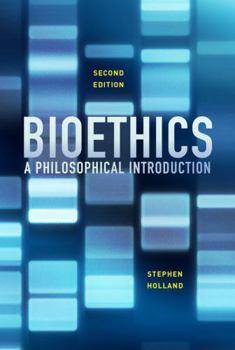Bioethics: A Philosophical Introduction
Select Format
Select Condition 
Book Overview
This book provides a clear and comprehensive introduction to contemporary bioethics. It also presents provocative, philosophically informed arguments on current bioethical issues. Holland engages with debates ranging from the more familiar - such as euthanasia, advance decisions to refuse treatment, and new reproductive technologies - to the philosophical implications of recent developments in genetics, including prenatal genetic therapy, genetic enhancement and human cloning. The book is built around four crucial themes. The first is moral status: what are the implications of the moral status of human embryos or animals for our biomedical practices? The second theme - life, death and killing - looks at the ethics of ending, or failing to lengthen, human life. Holland then explores various questions of personal identity raised in contemporary bioethical debates. Finally, he presents and develops a version of the argument from nature - which continues to be influential in bioethics - in order to make sense of the objection that some biomedical innovations are �unnatural�. Structuring the discussions in this way creates an engaging introduction to bioethics that is an ideal textbook for students, whilst offering much to stimulate colleagues in the field.
This second edition has been thoroughly and comprehensively updated to reflect the most recent advances in bioethics, and includes an entirely new chapter on the ethical treatment of patients in the minimally conscious state.





